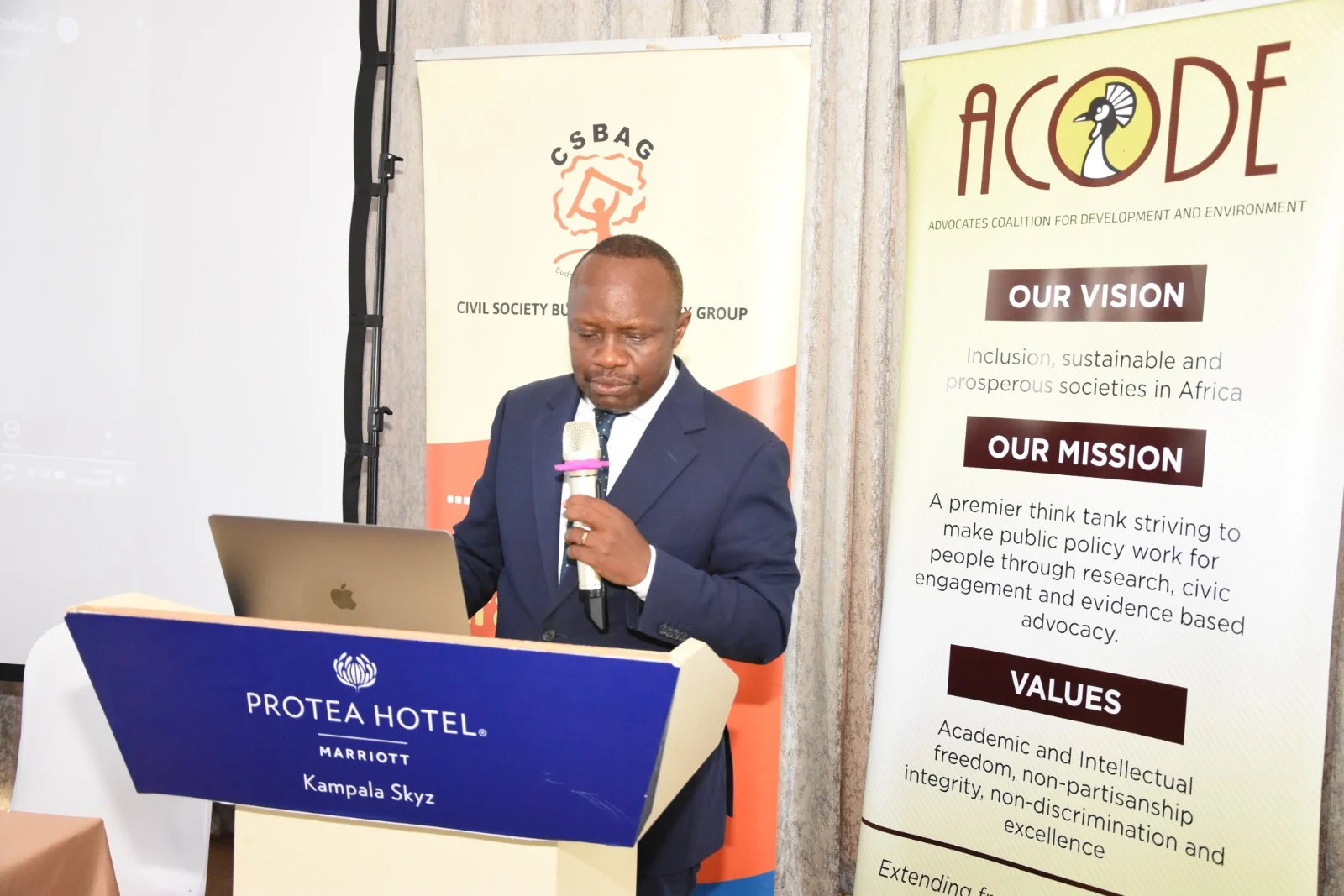DRC Conflict: Uganda’s Role in the Search for Regional Stability

Security experts, analysts, and civil society leaders have convened in Kampala to dissect the persistent conflict in the Democratic Republic of Congo (DRC) and its growing implications on regional peace and development.
The high-level dialogue, organised by the Advocates Coalition for Development and Environment (ACODE) and the Civil Society Budget Advocacy Group (CSBAG), aimed not only to unpack the root causes of the DRC conflict but also to spotlight Uganda’s role in the broader peace building process.
Speaking at the event, Dr. Arthur Bainomugisha, Executive Director of ACODE, stressed that understanding the complexity of the DRC crisis is fundamental before pursuing lasting solutions.
“Our keynote [is] to first understand the complex conflict in the DRC what are the interests, who are the actors, what are the drivers, and why has it been difficult to resolve because the starting point of resolving a conflict is to have a deeper understanding of that conflict or what we call conflict analysis,” Dr. Bainomugisha explained.
He added: “Unfortunately for Africa now, most leaders are narrow-minded and pushing for their own selfish interests.”
Renowned political analyst Andrew Mwenda added another layer of critique, asserting that any viable peace solution must begin with ejecting foreign powers whose involvement is often driven by self-interest and resource extraction.
“Until we remove those foreign powers, peace in Congo will remain elusive,” Mwenda noted.
He also advocated for community-led dialogue processes, saying: “Local communities should engage in dialogue to achieve a minimum political consensus.”
Citing Uganda’s own political model, Mwenda noted: “President Museveni has managed to build a functional state with a strong military, while working with powerful elites in the church, business, and civil society to create a bureaucratic, Bavarian-style state.”
Gen. Mugisha Muntu, National Coordinator of the Alliance for National Transformation, delved into the structural problems afflicting post-conflict African states.
“The problem in Congo is a reflection of the parasitic nature of the elite,” he stated.
“In many African countries that have experienced conflict, it’s the same issue. Our elite classes are more driven by selfish interests than by the needs of the people.”
He warned: “Until that dynamic is changed and we shift the balance of forces in favor of patriotic elites who care about stability and national interest, the cycle of conflict will continue.”
Uganda’s involvement in the DRC has been historically complex, marked by direct military interventions and ongoing security and economic interests. For decades, Uganda has cited security concerns particularly threats from rebel groups such as the Allied Democratic Forces (ADF)—as justification for its presence in eastern Congo.
In recent years, the ADF has been linked to bombings in Kampala, prompting joint military operations between the Uganda People’s Defence Forces (UPDF) and the Congolese army.
While Uganda’s role in the Second Congo War led to a damning International Court of Justice (ICJ) ruling, its government insists that its current presence is driven by regional security needs.
Uganda also has economic stakes in the DRC, including access to trade corridors and infrastructure investments such as roads that connect the two countries.
As a member of the East African Community (EAC), which recently admitted the DRC, Uganda views regional peace as essential to economic integration and growth.
With over 133 armed militia groups reportedly operating in the DRC’s mineral-rich eastern region, the humanitarian and security crisis remains deeply entrenched, with effects rippling across Uganda and other neighbors.
Wilson Kagyengwe, Member of Parliament for Nyabusozi Sub County and keynote speaker at the dialogue, emphasized that Uganda cannot afford to ignore the conflict next door.
“Peace in the DRC is not a Congolese issue alone. It is a regional matter. The insecurity affects our border communities, our trade, and our shared future,” he said.
As the region grapples with conflict-induced instability, participants agreed that diplomacy must be matched with actionable commitments.
“What we are calling for is a shift from rhetoric to action—collaboration beyond borders, not just in fighting rebels, but in building institutions that deliver services and justice,” Dr. Bainomugisha concluded.



0 Comments